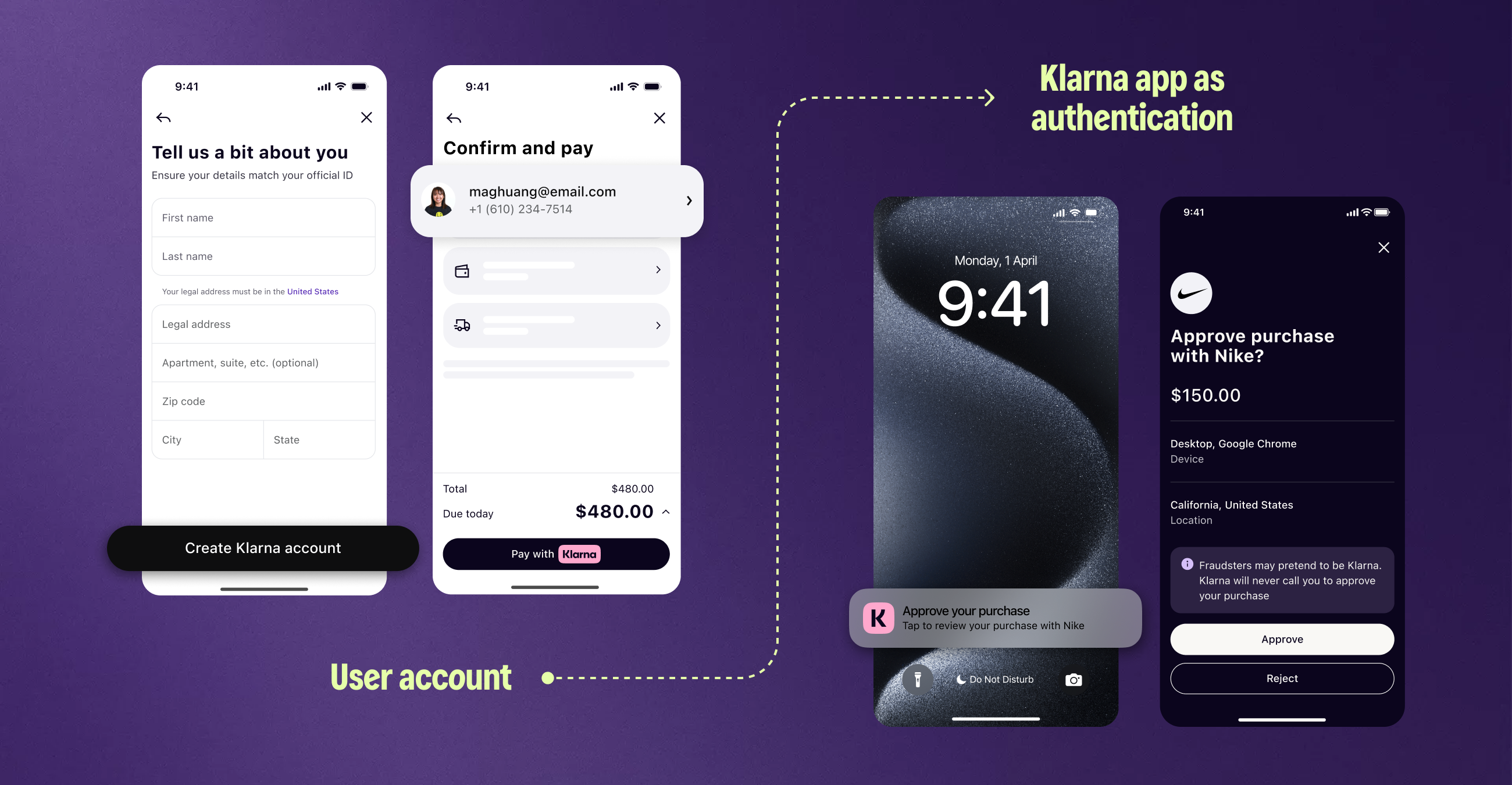
Introduction
In this project, I’ll walk through 2 key initiatives that I have led in my time, to help build the trust and safety at Klarna.
It begins with the global rollout of user accounts—a foundational step that enabled us to introduce the Klarna App as authenticator—since app-based login requires a verified account.
Both of these paved the way for safer logins, fraud prevention, and a more secure experience.
#1 Klarna app as authenticator
To protect users and reduce reliance on vulnerable methods like SMS, we transitioned our users towards the Klarna App as a primary authentication method.
Role
I led this initiative from start to end, producing the prototypes and defining the user journey of the e2e experience from mobile to desktop. I also ideated with visual motion while the final motion asset was produced with the help of another designer.
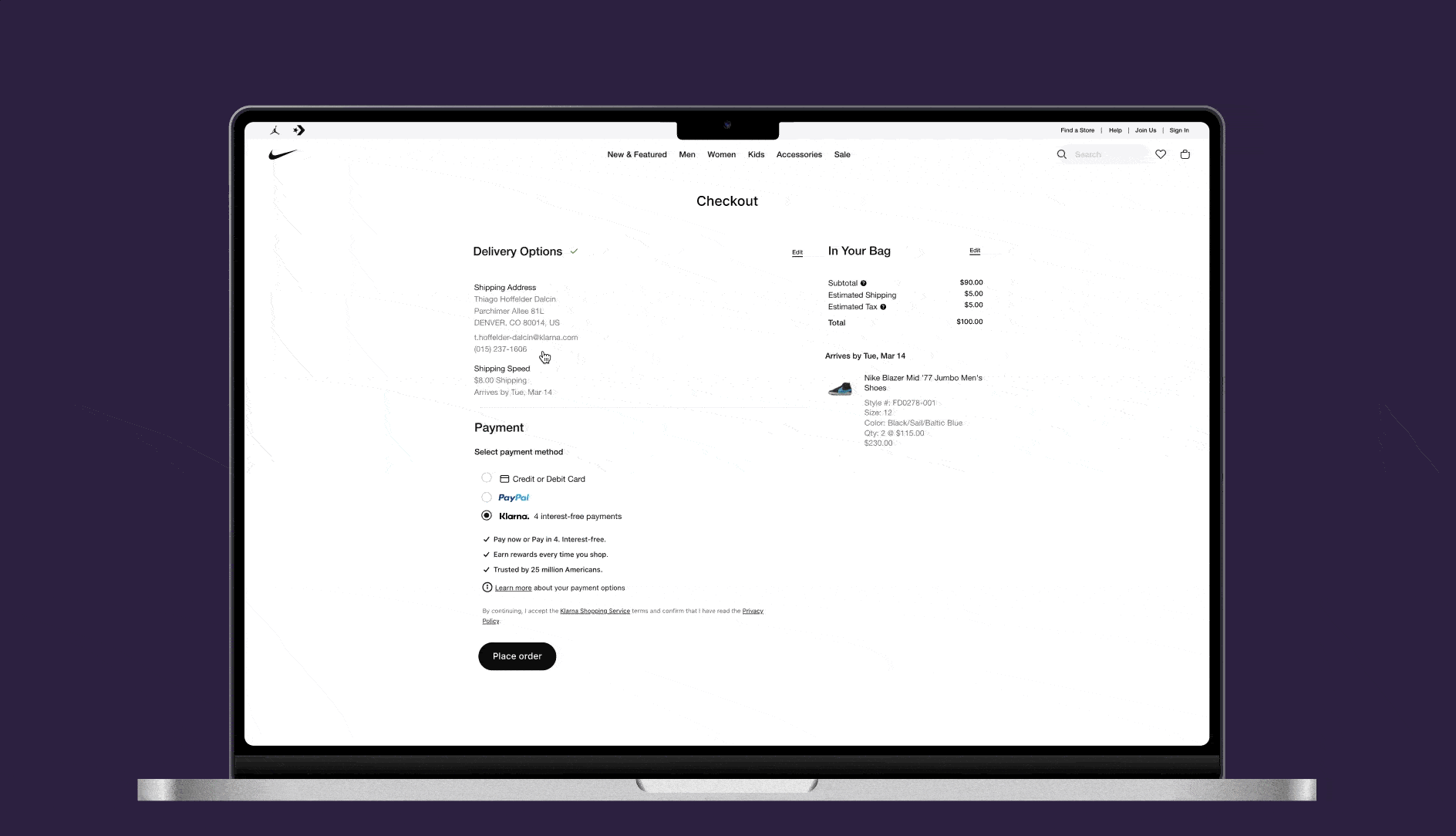
Objective
By shifting away from SMS-based verification (which is prone to SIM swapping, interception, and phishing), we enabled safer, more seamless authentication directly within a secure app environment.
Extending app as authenticator to other use cases:
3 key use cases
1. Approve Purchases when risk or fraud signals are detected
2. Verify Sign-ins on new or untrusted devices for secure access
3. Authenticate Identity during live support to safely assist customers
Benefits
✅ Improved security by reducing exposure to common attack like SMS fraud & social engineering.
🔐 Built user trust by reinforcing Klarna app as a secure platform for payments and sign-ins.
📉 Reduced operational cost by cutting the volume of expensive SMS OTPs.
📈 Increased app downloads & retention by using the app for secure account access.
Motion exploration
I also explored motion ideas to help visualize the handover transition during the authentication flow. My early quick concepts helped kickstart and shape the final direction and the final motion asset was producted by another designer.
Direction 1 — Subtle motion to signal liveness during transition
Direction 2 — Visualise the flow briefly and actual change of states
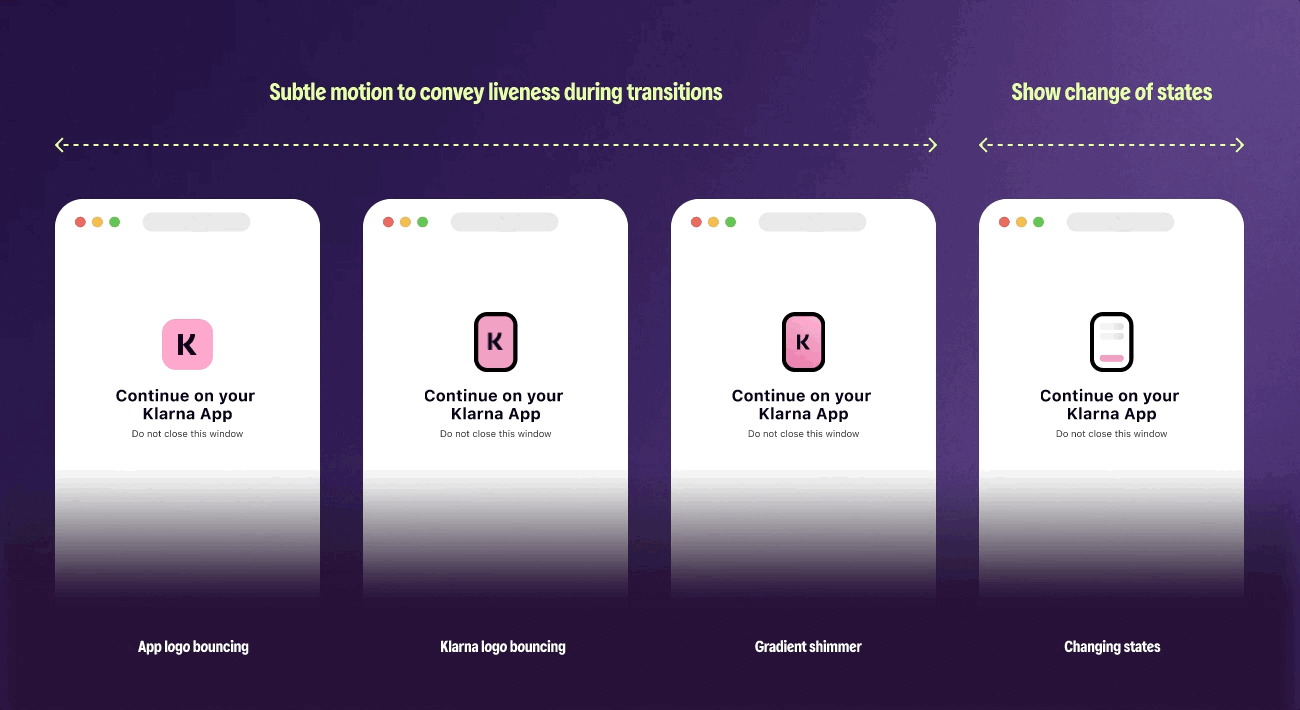
Outcome
We achieved a 100% global rollout with app as authenticator (desktop). Users using app as authenticator to sign in or complete purchase makes up about 30-40% of total traffic.
More significantly, we see an improvement across all metrics — Login, purchase and fraud rate
• Login conversion rate ↑0,86%
• Purchase conversion rate ↑9.45%
• Fraud rate ↓0.0062%
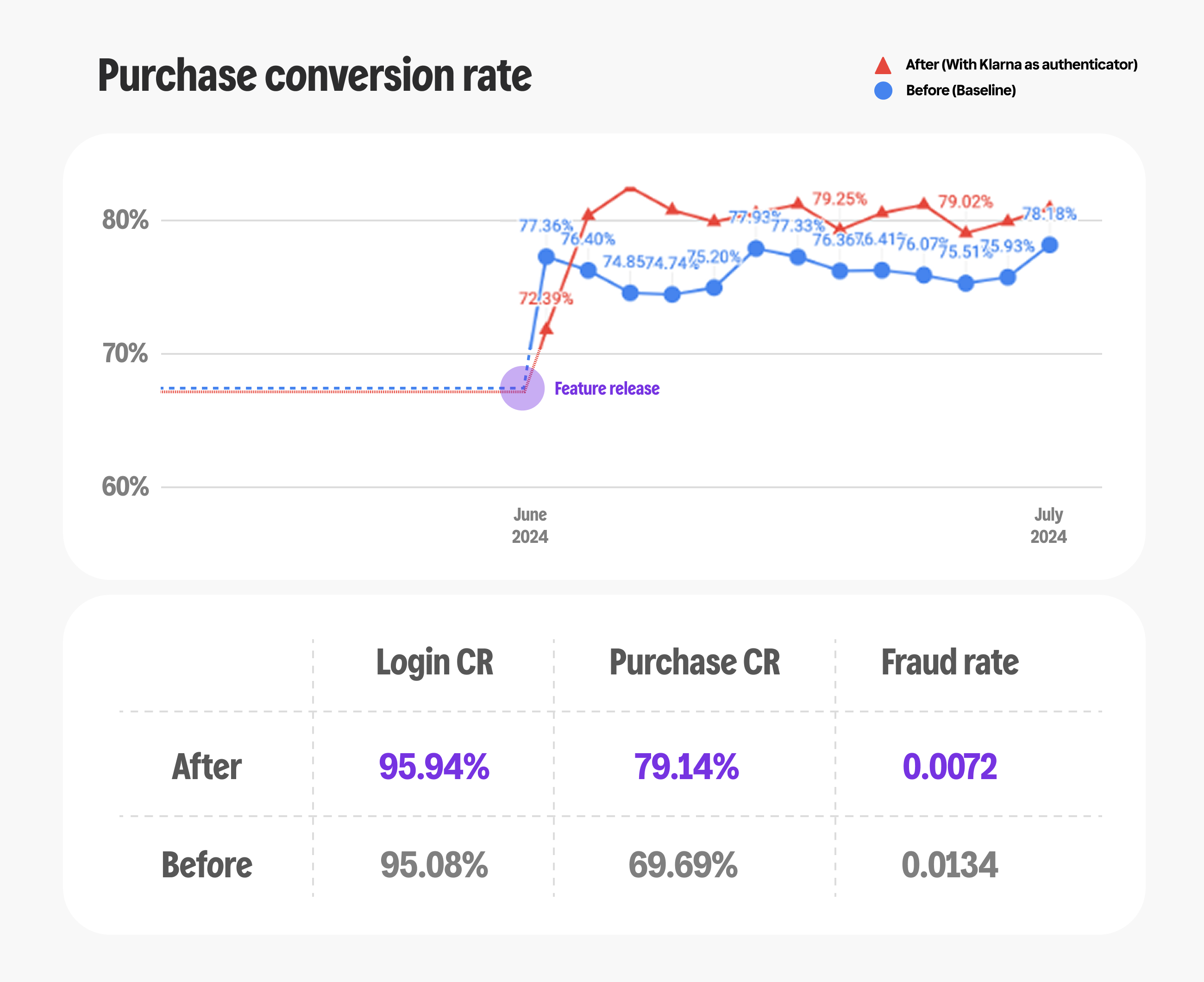
#2 User accounts in Klarna
Role
I led the end-to-end design and rollout of user accounts in Klarna across all markets and for all users— laying the foundation for app-based authentication. I have worked closely with a researcher and data analyst to drive user-testing before and after launch.
Objective
The user account rollout was critical in setting the stage for future security enhancements, to ensure an always secure experience.
Without user accounts, enforcing the app as an authenticator becomes challenging as users are less inclined to want to have a Klarna app.
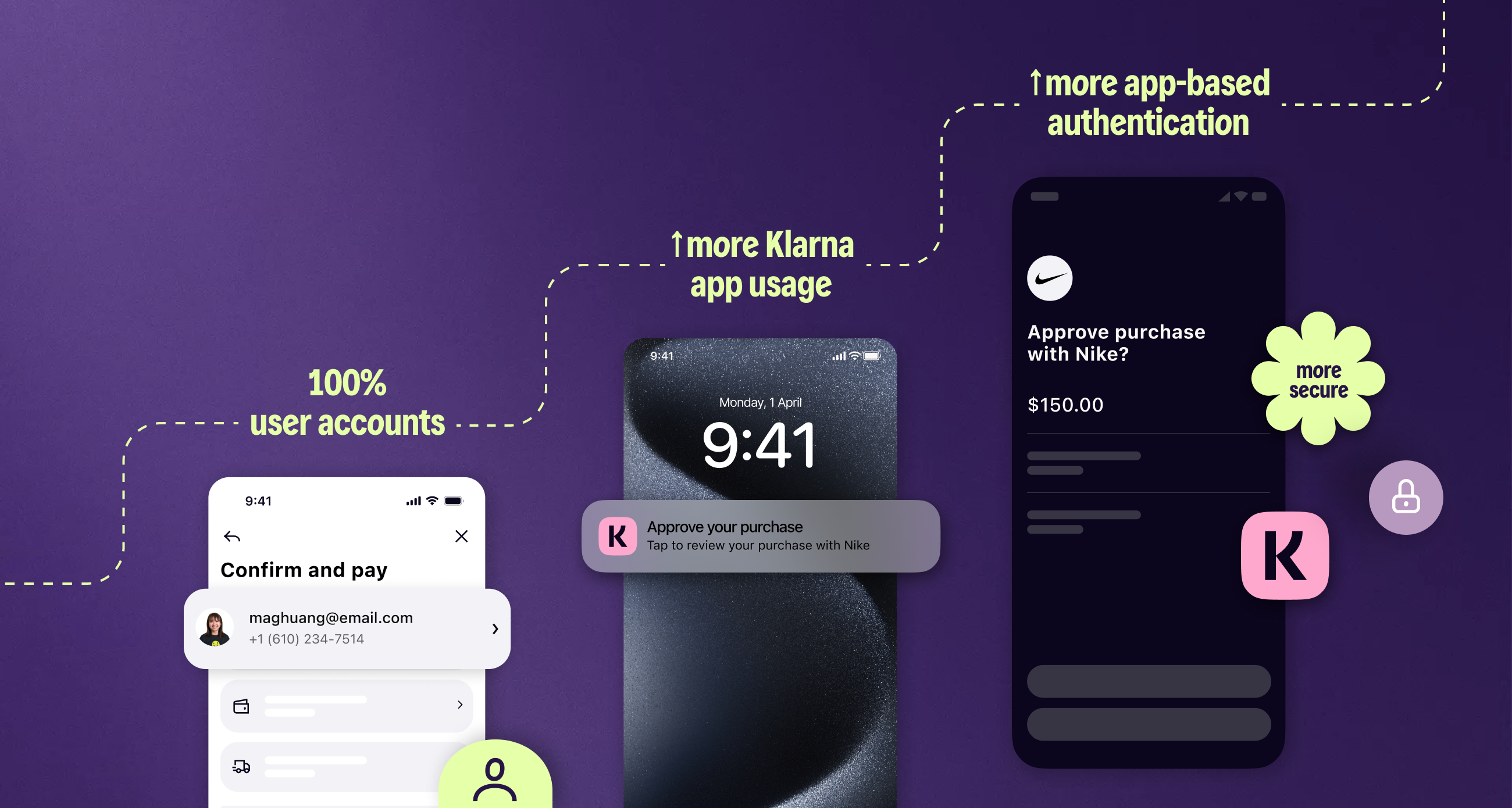
Why is having user account so critical?
User accounts are foundational for trust and security. Accounts enable clearer identity verification, reduce attacks, provide a secure and personalized experience.
Before the Klarna App could function as an authenticator, users needed to have a consistent, secure identity across platforms.
User accounts made that possible. This shifted Klarna toward a logged-in, account-based ecosystem which further enabled future-proof authentication flows
New user creating Klarna account:
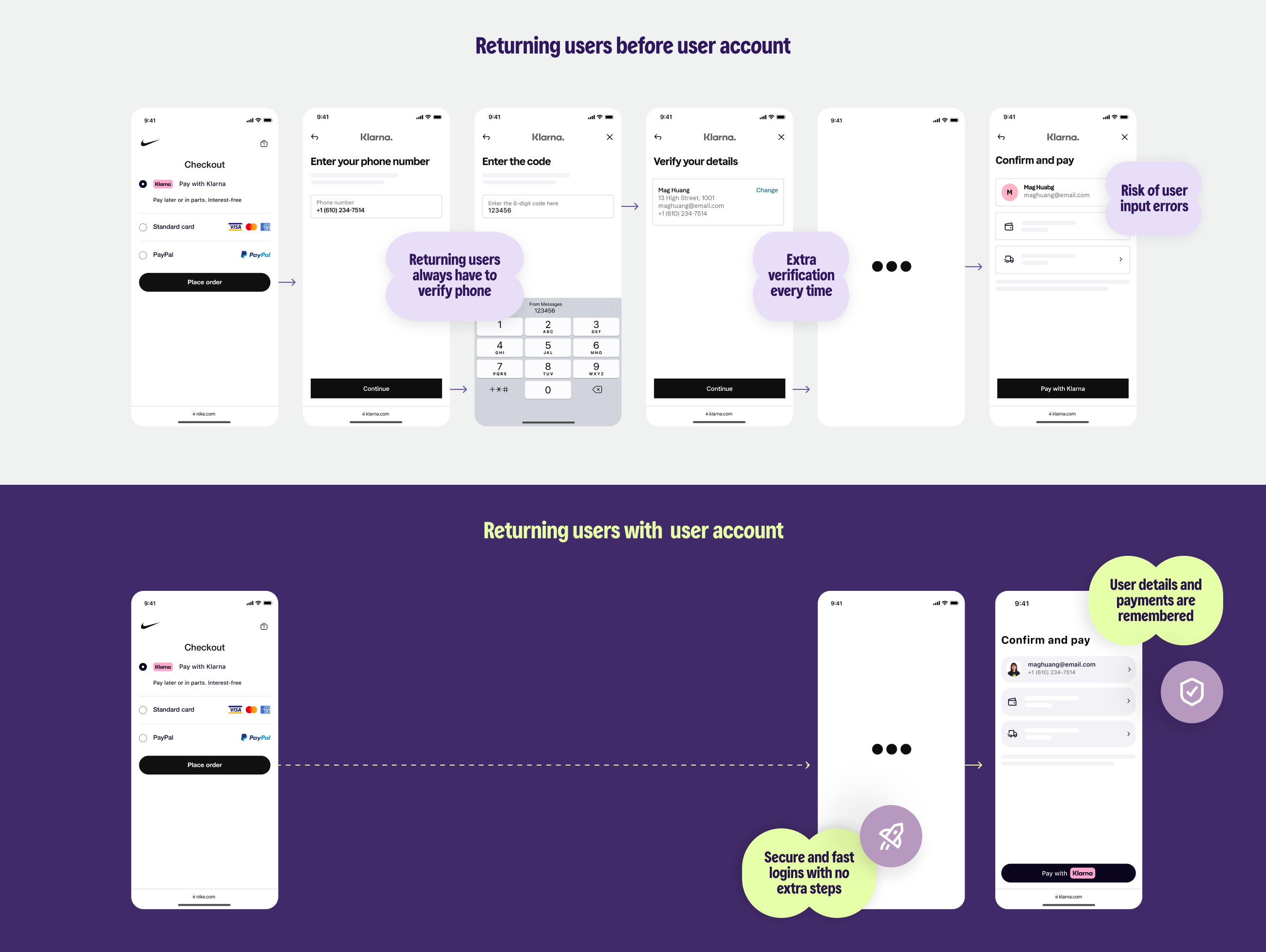
Benefits
🚀 Skip SMS OTP for faster, frictionless logins.
🛍️ Save preferred payment methods and shipping details for quicker checkouts.
🔒 Enable secure, consistent access across devices.
🕵🏻♂️ Detect and manage suspicious login attempts in real-time.
UX enhancements
As we transitioned to a user account model, I led UX enhancements to build trust and clarity—ensuring new users felt safe sharing personal information and clearly understood they were creating a Klarna account.
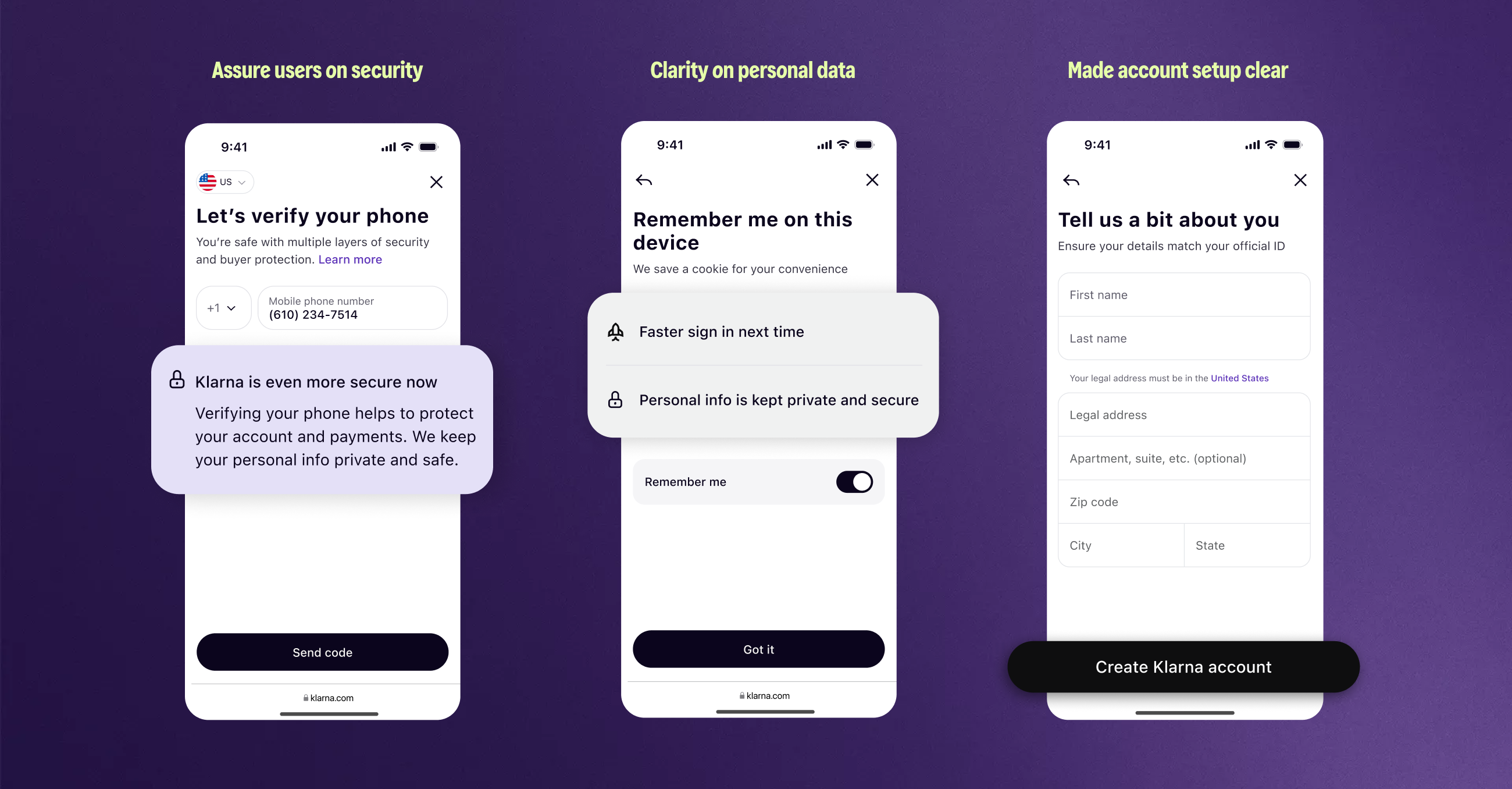
Key Improvements
🔒 Reassured users about phone number collection
→ Assured users that their phone number is securely handled and never shared.
💡 Clarified “Remember Me” functionality
→ Explained how it enables faster and safer logins while assuring personal data security.
✅ Made account creation explicit
→ Refined CTA language to make it crystal clear that users are creating a Klarna account
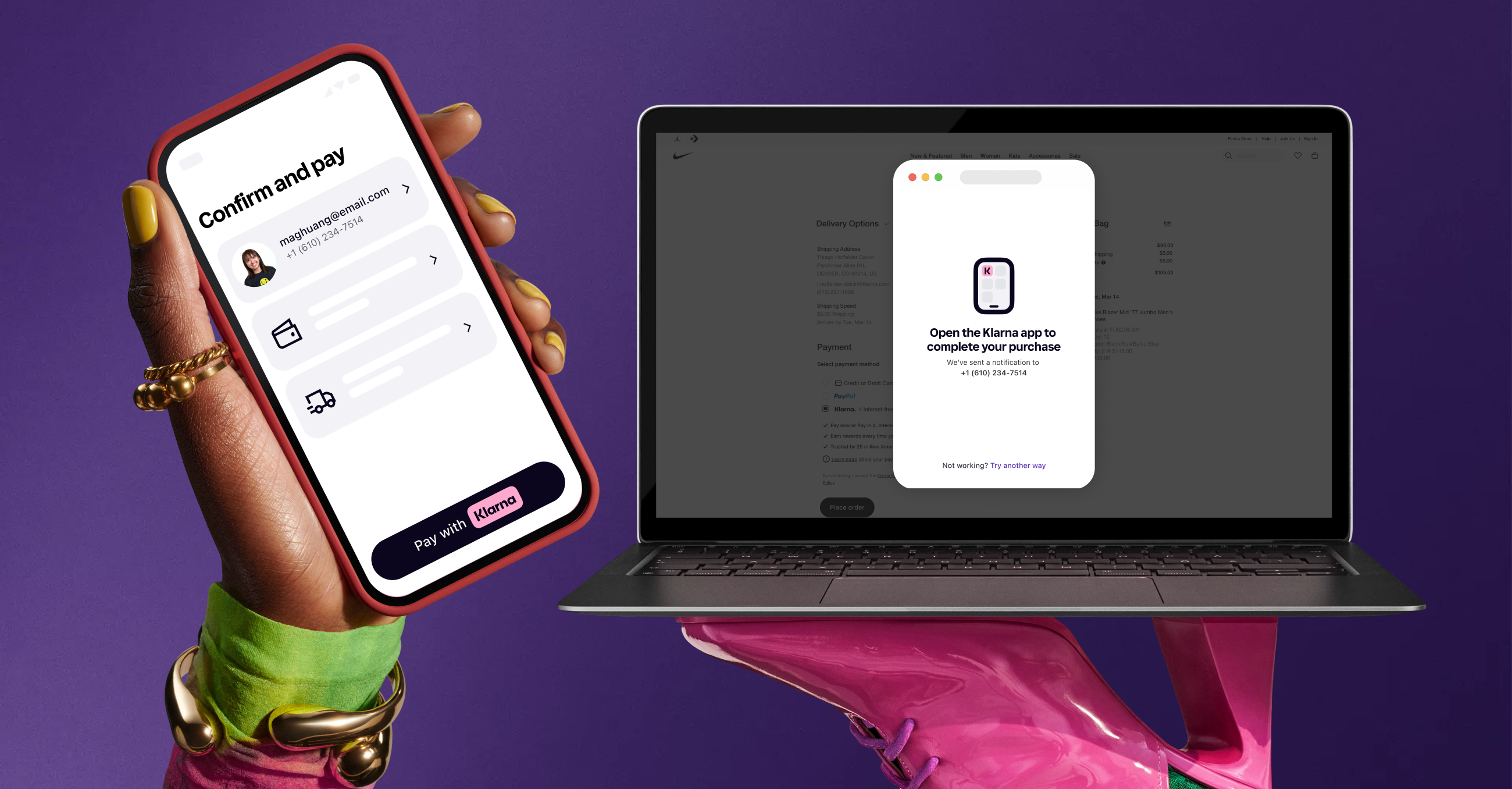
Outcome
We released user accounts globally;
Rolled out 100%—all markets, all users.
This includes localized experiences for key regions like Germany and Sweden. The transition was phased over several months to ensure smooth adoption and regional compliance.